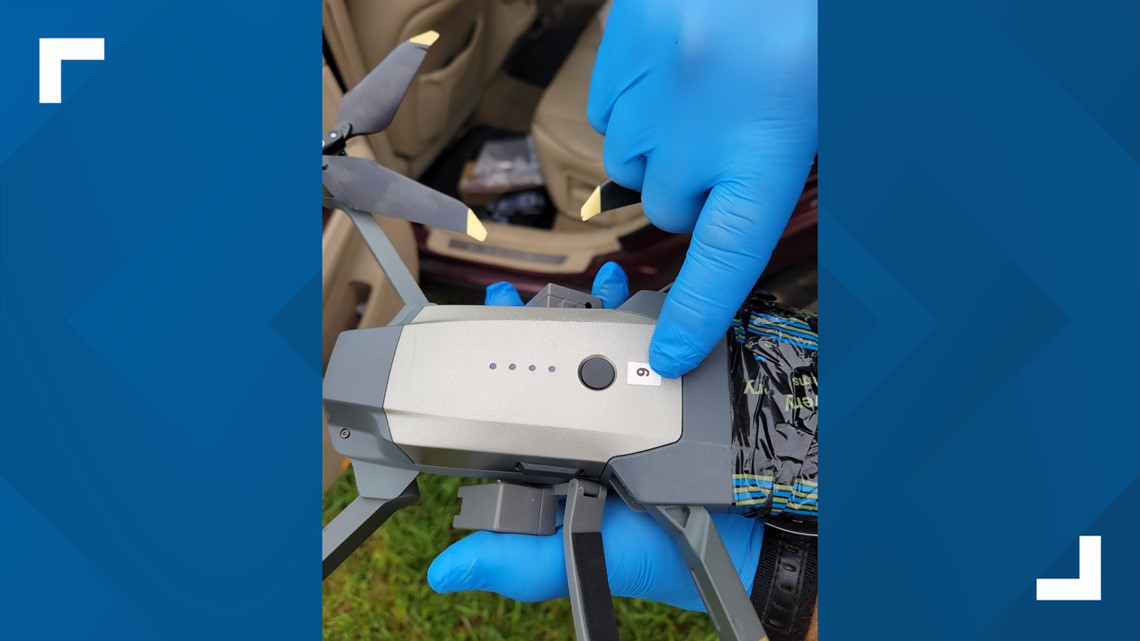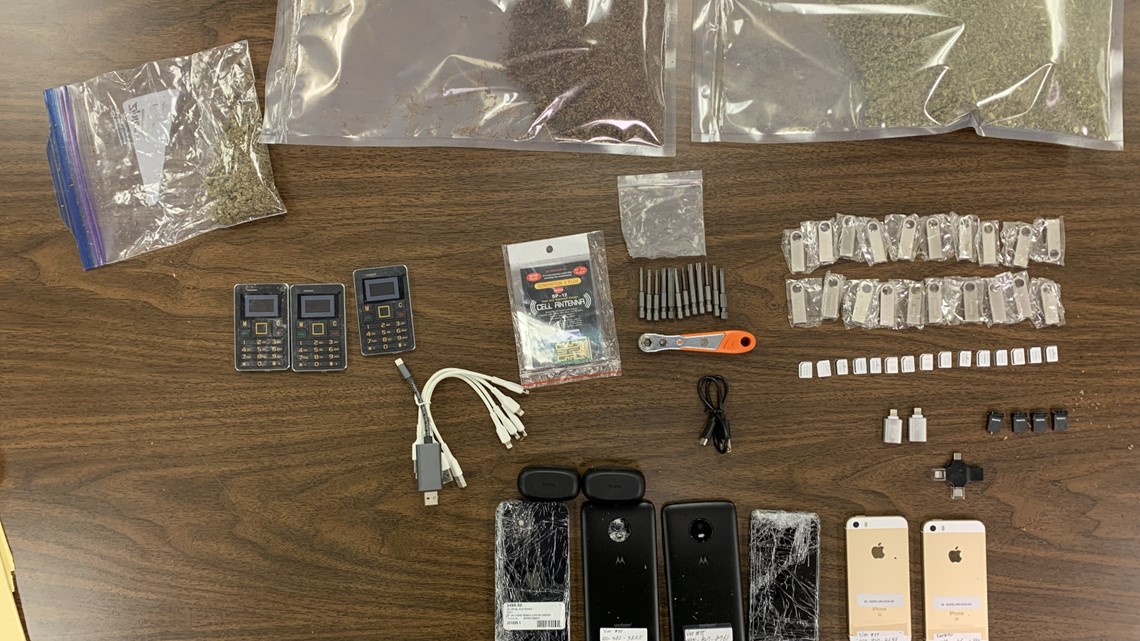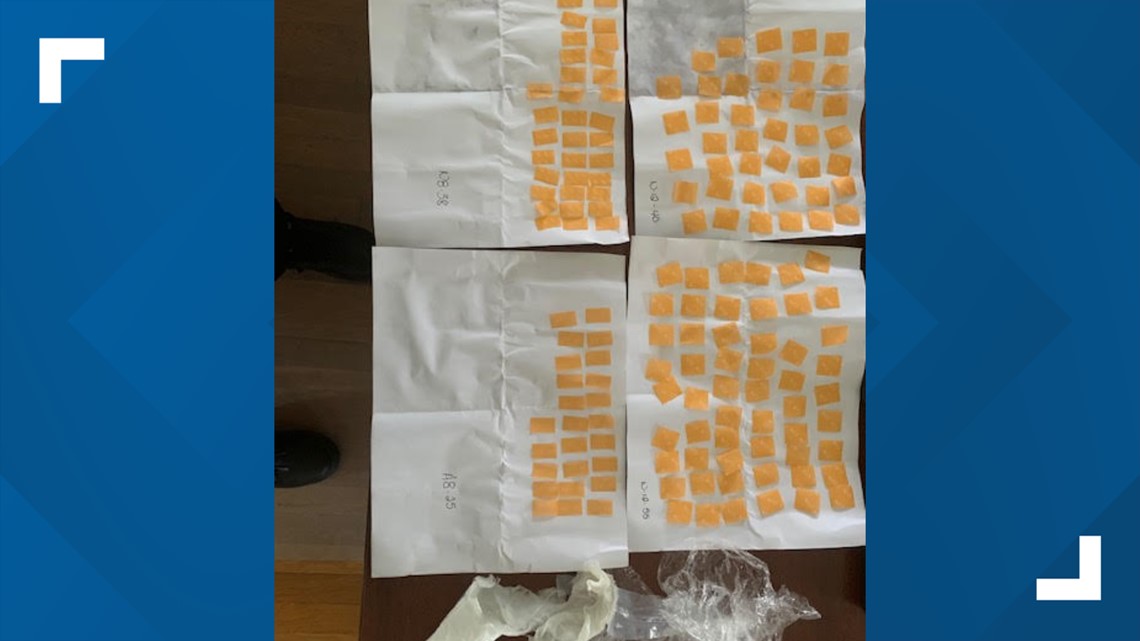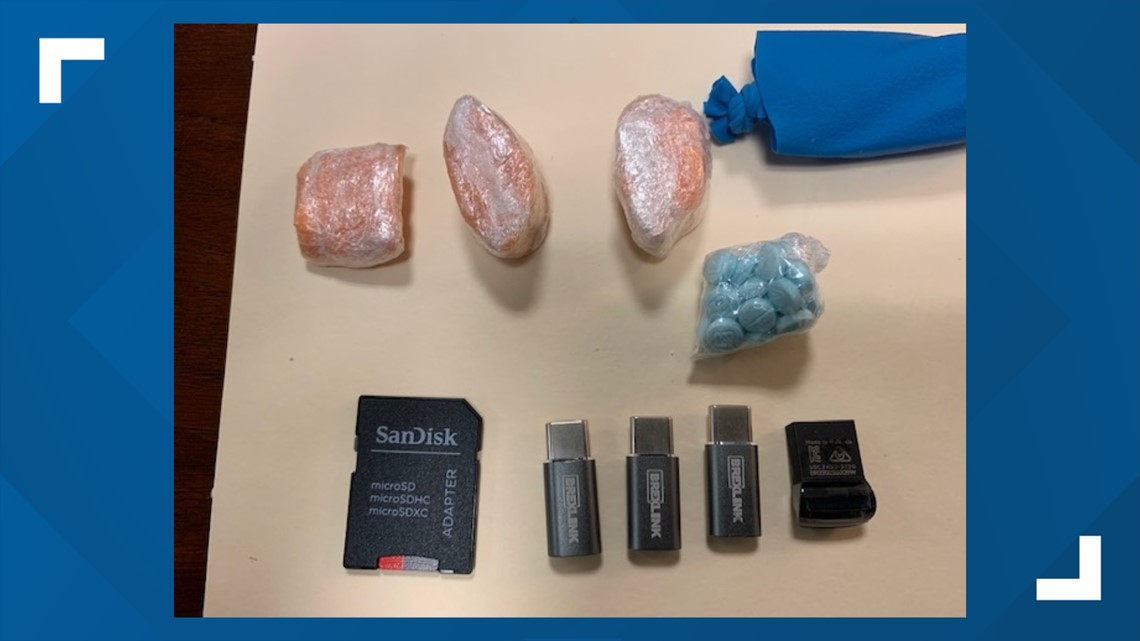The schemes involved drones, a hospital and civilians recruited through social media.
HAGERSTOWN, Md. — Fifteen people were indicted by the Maryland Attorney General Thursday for three different prison contraband conspiracies at the Roxbury Correctional Institute (RCI) in Hagerstown.
An investigation revealed a sophisticated criminal network that employed drones, a correctional officer and a hospital. It allowed for the distribution of dangerous drugs and other contraband such as cell phones, tools and other items throughout the prison. Attorney General Anthony Brown said it's the second major indictment involving contraband smuggling in the past six weeks.
“Crimes committed behind locked prison gates are as much a threat to our communities as crimes committed in our neighborhoods and streets,” Brown said. “The Office of the Attorney General is committed to doing the work of making sure that anyone who tries to threaten the safety of Marylanders will be caught and brought to justice.”
The investigation began in April 2022 after prison officials recovered drugs and other contraband from an RCI inmate returning from a hospital visit. Working with the Attorney General's Office, the investigative team uncovered a complex web of conspiracies. Investigators said outside civilians were even recruited through social media.


In one conspiracy, inmate Jose Tapia recruited two civilians via Instagram and paid them to try to fly drones over the RCI fence and drop drugs and other contraband for Tapia to receive and redistribute within RCI. On Sept. 7, 2022, law enforcement interrupted an attempted drone delivery and arrested Guy Austin and Miya Scott. Investigators also recovered a drone Austin and Scott had crashed the evening prior while attempting to make a delivery. The recovered packages attached to the drones included drugs, tools, cell phones, phone chargers, SIM cards, headphones, and thumb drives.
"Our Intelligence and Investigative team did a great job collecting information to build a strong case that we could present to our partners in the Attorney General’s office for prosecution,” said Carolyn J. Scruggs, Secretary of the Maryland Department of Public Safety and Correctional Services. “Anytime contraband is introduced into one of our facilities, it places our staff and the incarcerated in danger. We will not tolerate contraband because it can lead to violence."


Austin was charged in a 60-count indictment, including charges of contraband conspiracy and other drug-related charges. Scott faces 19 similar charges.
In the second conspiracy, a kitchen worker named Temille Ashby, a 10-year employee of the Department of Public Safety and Correctional Services, smuggled drugs to inmate Jamal Brown, who would then redistribute them within RCI.
Investigators say Ashby would work in the RCI kitchen where Brown was assigned to work. On Nov. 5, 2022, law enforcement intercepted Ashby when she reported to RCI to work an overtime shift and recovered a bundle of approximately 158 strips of Suboxone, which Ashby had hidden within her body cavity. Suboxone is sold for $100 a strip inside of prison, the AG's office said. Financial records showed that Ashby had received approximately $16,132 in payments on Cash App from Brown and his family members. Brown and Ashby were both charged.


In the third conspiracy, inmate Akeem Banks was transported from RCI to the University of Maryland Medical Center (UMMC) in Baltimore City for medical treatment. Friends and family of other RCI inmates would hide bundles of drugs and other contraband within bathrooms at UMMC, which Banks would collect during his visits to the hospital, according to investigators. Banks hid the contraband in his clothing and smuggled the items back to RCI. Once inside RCI, Banks would give the contraband to other inmates, who would redistribute the items within the facility.


Between April 2022 through August 2022, law enforcement intercepted four packages of drugs and other contraband intended to be smuggled into RCI. The recovered packages included drugs, including fentanyl, cell phones, power adaptors, flash drives, and cigarettes. Surveillance showed captured two people hiding packages within UMMC. A total of five people were charged in this conspiracy.
Cell searches at BCI discovered additional contraband, The Attorney General's office charged an additional five people as a result of the cell searches.
“Illicit controlled substances, like Fentanyl, continue to flood our country at an alarming rate, and no communities or institutions are immune from its devastation, to include this correctional facility in Maryland”, mentioned Jarod Forget, Special Agent in Charge of the DEA Washington Division. “Multi-agency collaboration is fundamental to disrupt and reduce violent, drug-related crimes, hold these offenders accountable and ultimately ensure the safety for our neighborhoods. The DEA resources and expertise are always available to our counterparts. We must continue our efforts until we no longer see illicit drug distribution and gang violence in our communities."
.png)









 English (US) ·
English (US) ·